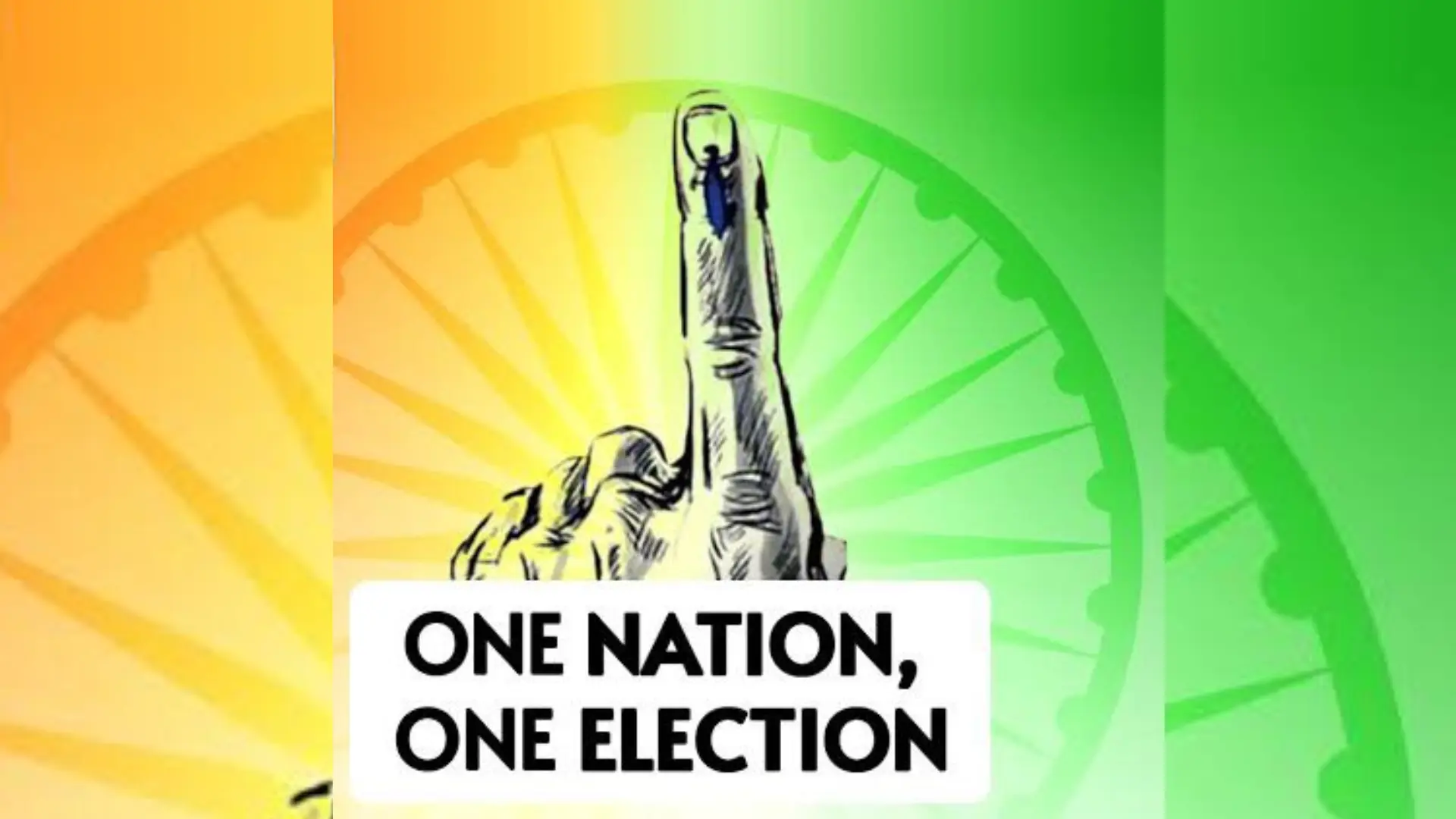The Union Cabinet has tabled the idea of for ‘one nation, one election,’ which will lead to simultaneous elections for state and union governments, as well as urban bodies or panchayats. The Cabinet approved the report from the panel led by former President Ram Nath Kovind, which concluded that there was “unanimous” support for the concept.
The BJP has strongly supported the proposal, arguing that it would save time and money. However, nearly two dozen opposition parties, led by the Congress, have criticized it as impractical and unnecessary.
Understanding ‘One Nation, One Election’
The idea of ‘one nation, one election’ entails holding Lok Sabha, Assembly, and local body elections in the same year, if not simultaneously. This system was in place from India’s independence until 1967, with four such electoral cycles held, including the first general election in 1951/52, and those of 1957, 1962, and 1967. However, the cycle was broken due to the premature dissolution of state governments in 1968 and 1969, as well as early termination of the Lok Sabha in 1970.
Currently, only seven states hold elections in the same year as the national Lok Sabha elections. These include Andhra Pradesh, Sikkim, and Odisha, which voted earlier this year alongside the April-June Lok Sabha elections.
In March 2024, the panel submitted its report to President Droupadi Murmu, stating that there was “unanimous opinion” in favor of simultaneous elections. The panel noted that 32 political parties and retired high-ranking judicial members supported the idea, and over 80% of the 21,000 public suggestions were in favor. The panel recommended starting with joint Lok Sabha and Assembly elections, with local body elections following within 100 days.
How ‘One Nation, One Election’ Can Be Implemented
To implement this proposal, the government must introduce two critical bills in Parliament—one for Lok Sabha and Assembly elections and another for municipal and panchayat polls. However, the ruling BJP lacks the special majority required to amend the Constitution, needing at least two-thirds approval in both the Rajya Sabha and Lok Sabha. Consequently, the government will require opposition support to pass these bills.
The second bill adds complexity as it deals with local body elections, requiring ratification by at least half of the states. The BJP currently controls 19 states, while the opposition holds eight, so ratification may not be problematic despite potential protests.
The BJP has argued that simultaneous elections will boost economic growth by allowing governments to focus on governance and policy-making. It also claims that a single election cycle will reduce voter fatigue and increase turnout. Furthermore, proponents believe it will reduce disruptions to supply chains, as migrant workers often travel home to vote, taking significant time off work.
Former Union Minister Anurag Thakur noted that before 1962, simultaneous elections were the norm and suggested that a few adjustments could lead to a better financial outcome for India, accelerating the country’s path to development.
Opppsition Concerns
The opposition parties have consistently opposed ‘one nation, one election.’ Congress leader Mallikarjun Kharge dismissed the proposal as a tactic to divert attention ahead of the Haryana elections, asserting, “This is not going to succeed… the people will not accept it.”
Prominent leaders like Bengal Chief Minister Mamata Banerjee and Tamil Nadu Chief Minister MK Stalin have voiced concerns, with Banerjee arguing that the proposal threatens the basic structure of the Constitution. Other opposition parties, including the AAP and Samajwadi Party, have raised alarms about the practicality of the idea.
The opposition’s main objections focus on the costs involved, particularly the estimated ₹10,000 crore required every 15 years to replace electronic voting machines (EVMs), along with the constitutional challenges of realigning electoral cycles.
One of the significant challenges of ‘one nation, one election’ is how to handle states where elections will not coincide with the 2029 general elections. The Kovind panel suggests that the tenure of some state Assemblies may be reduced to synchronize with the 2029 cycle. For example, the winning party in Delhi’s 2025 election would govern for four years, while the party winning the 2028 Karnataka election would serve only for one year.
In case of early dissolution of state Assemblies, the panel proposes holding fresh elections but limiting the term to ensure alignment with the national election cycle.
Countries like South Africa, Sweden, Belgium, and the United Kingdom hold simultaneous elections for national and regional bodies. Nepal also conducted a joint election in 2017 after adopting a new Constitution that required polls at all levels.
Read More : PM Modi To Visit Prayagraj: Launch Of Rs 7,000 Crore Development Projects




